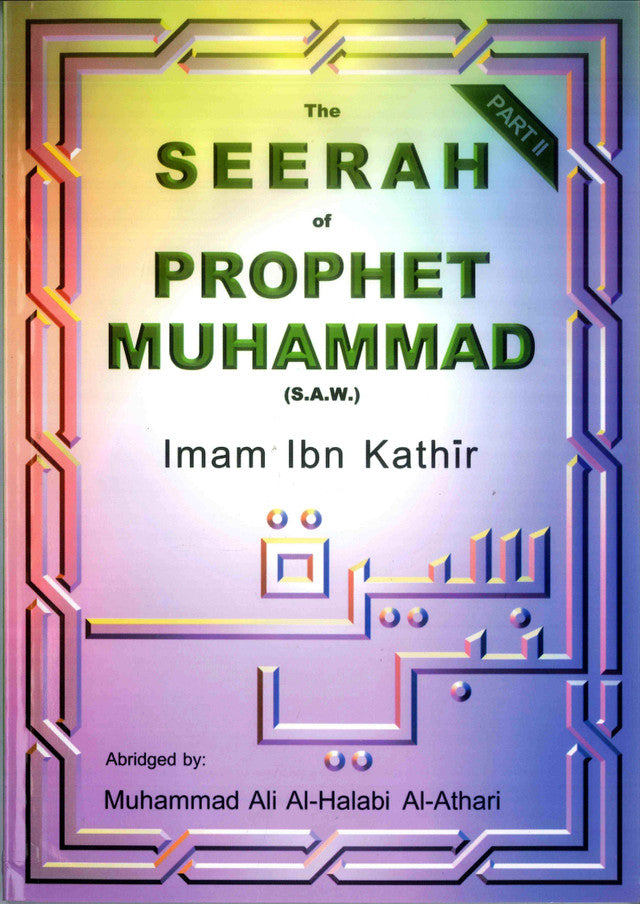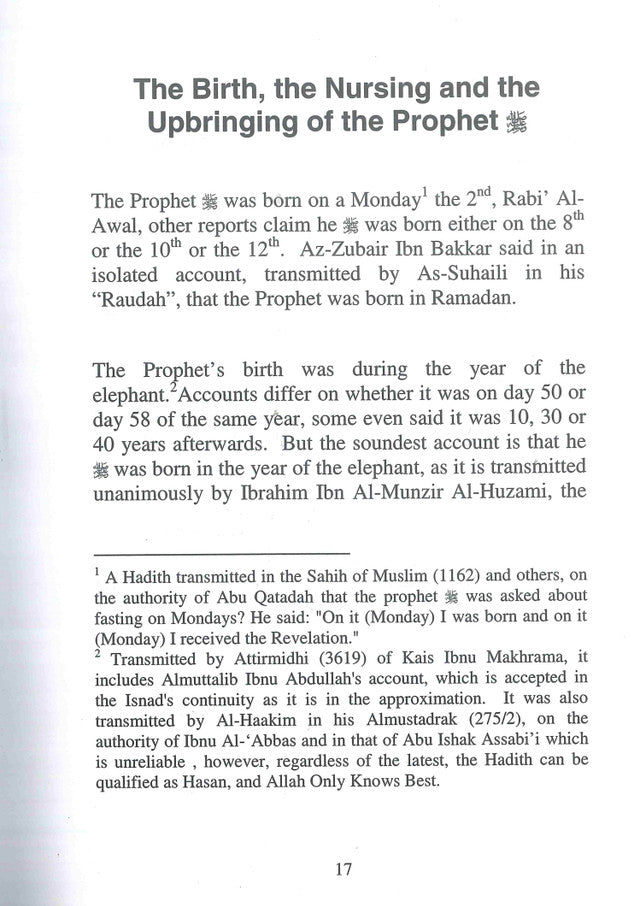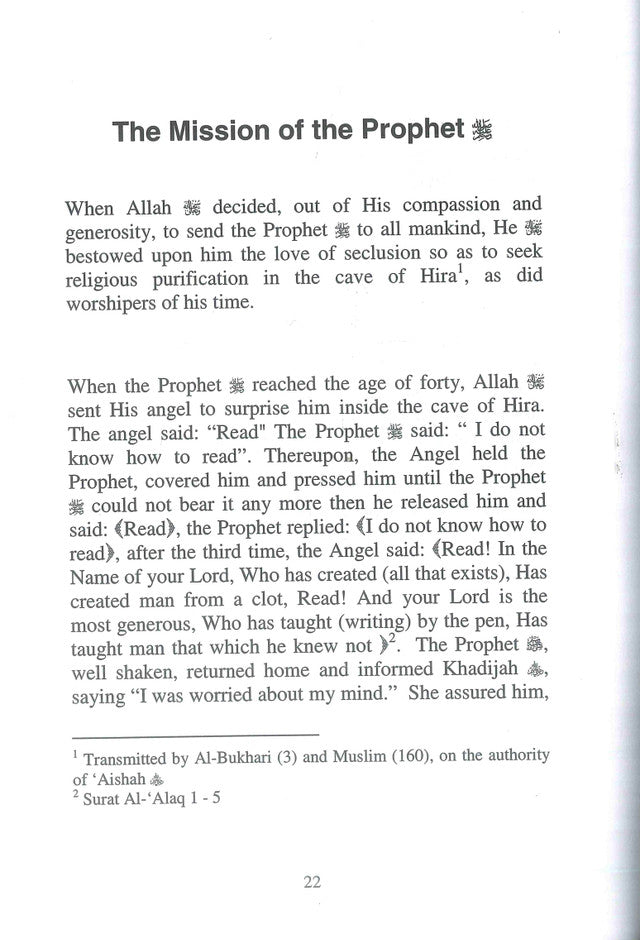The Seerah of Prophet Muhammad صلی الله علیه وآله وسلم Part 1
The Seerah of Prophet Muhammad صلی الله علیه وآله وسلم Part 1
Publisher:
Al Firdous LTD
Author:
Imam Al-Hafiz Ibn Katheer
Language:
English
Binding:
Soft Cover
Pages: 182
Size: A5 |5.8 x 8.3 in| 14.8x 21 cm
Couldn't load pickup availability





Collapsible content
Description of Book
Publisher
Al Firdous LTD
Author
- Imam Al-Hafiz Ibn Katheer
Sample Pages - Content
Page:01TheSEERAHofPART IPROPHET MUHAMMAD(S.A.W.)Imam Ibn KathirAbridged by:Muhammad Ali Al-Halabi Al-AthariPage :02The Birth, the Nursing and the Upbringing of the ProphetThe Prophet was born on a Monday the 2nd, Rabi' Al- Awal, other reports claim he was born either on the 8th or the 10th or the 12th. Az-Zubair Ibn Bakkar said in an isolated account, transmitted by As-Suhaili in his "Raudah", that the Prophet was born in Ramadan.The Prophet's birth was during the year of the elephant. Accounts differ on whether it was on day 50 or day 58 of the same year, some even said it was 10, 30 or 40 years afterwards. But the soundest account is that he was born in the year of the elephant, as it is transmitted unanimously by Ibrahim Ibn Al-Munzir Al-Huzami, the1 A Hadith transmitted in the Sahih of Muslim (1162) and others, on the authority of Abu Qatadah that the prophet was asked about fasting on Mondays? He said: "On it (Monday) I was born and on it (Monday) I received the Revelation."Transmitted by Attirmidhi (3619) of Kais Ibnu Makhrama, it includes Almuttalib Ibnu Abdullah's account, which is accepted in the Isnad's continuity as it is in the approximation. It was also transmitted by Al-Haakim in his Almustadrak (275/2), on the authority of Ibnu Al-'Abbas and in that of Abu Ishak Assabi'i which is unreliable, however, regardless of the latest, the Hadith can be qualified as Hasan, and Allah Only Knows Best.17
Who is Imam Al-Hafiz Ibn Katheer?
Ahmed Musa Ata'Allah is an Islamic scholar and educator known for his contributions to Islamic thought, particularly in the areas of Islamic law, spirituality, and personal development. He focuses on providing guidance based on the Quran and Sunnah, aiming to help individuals strengthen their faith and live in accordance with Islamic principles. Through his lectures and writings, Ahmed Musa Ata'Allah emphasizes the importance of spiritual growth, piety, and ethical conduct, encouraging Muslims to lead balanced lives with a strong connection to Allah.





